Trusted brand
We need our stakeholders’ trust to earn our ‘license to operate’ and be successful. To earn and strengthen that trust, we maintain a strict agenda on topics such as quality, compliance, ethics and integrity, and anti-corruption. Our purpose requires us to make an impact. As stated elsewhere, we primarily make an impact that matters through our client work. But additionally, we also endeavour to make an impact that matters by actively engaging in dialogue with public policy makers and through our Deloitte Impact Foundation projects.
Enhancing quality
Our ambition to become the undisputed leader in professional services goes beyond mere volume of our business and includes to be leading in (audit) quality, the impact we make, and the position we have in the minds of our clients, stakeholders and talent.
We believe the path to undisputed leadership in quality is through sustainable competitive advantage. The only way to create this is through differentiation. Differentiating on quality goes beyond technical quality and asks for unique propositions delivered in Deloitte’s own unmatched multidisciplinary model. Furthermore, through our client work we want to have a tangible impact on the key societal challenges in the Netherlands. The societal challenges are translated in the ‘Future of’ themes.
System of quality control and differentiation
We have an overarching system of quality control that currently is being enhanced through the implementation of the international quality management standard ISQM1. In addition, we have established a differentiated model around our central commitment to quality that has enabled our success. To achieve our business aspiration to become the undisputed leader and really differentiate on quality, we have initiatives across the five pillars of our quality model. Progress on these initiatives is being measured based on a set of (strategic) KPIs.
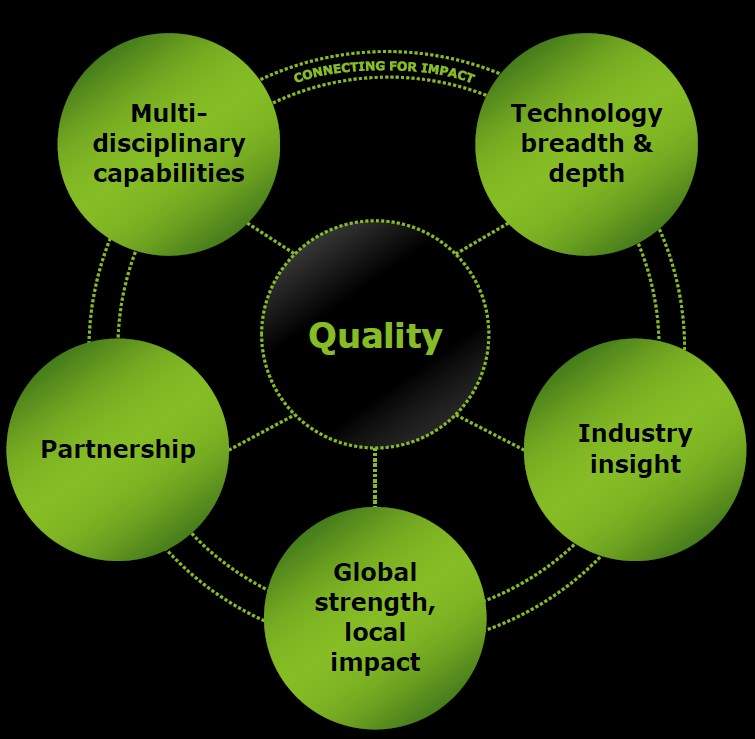
Multidisciplinary capabilities
We continue to build trust in the financial reporting ecosystem by being at the forefront of Audit and using Deloitte’s broad and deep advisory expertise in our audits, on e.g. cyber, fraud, continuity, non-financial information and analytics.
For our Advisory Businesses, MDM is the preferred strategy for serving clients, bringing together unrivalled breadth of capabilities and increase seamless collaboration across all businesses providing unique propositions across our designated growth platforms. It is a top priority to deliver the quality clients and society expect from us in these large and complex (transformation) engagements. In order to guarantee the quality on these complex transformation engagements we have an active monitoring programme in place where periodic in-flight reviews are performed during engagement performance and additional risk mitigation is taken if needed. Besides that, we closely measure and monitor the client satisfactory scores.
Technology breadth & depth
We believe clients value Deloitte for our unique and integrated technology / cyber transformation solutions. In our Center of Ecosystem Expertise, a cross-functional initiative managed by Deloitte Innovation, we foster ecosystems and bring together the expertise we have on this topic. More and more, the market requires our advice on ecosystems, regardless of the industry or portfolio. Leveraging the power of our brand, Deloitte is uniquely positioned to orchestrate ecosystems and help clients build cohesive offerings and solve large complex challenges together. Deloitte’s unique propositions are supported by a digital support organisation.
Global strength, local impact
We are increasingly integrating our global expertise, knowledge and support in local service delivery. Increasing the use of Deloitte experts from all over the world in local engagements enhances our client service delivery and the impact we make on our local clients. Cutting edge content management solutions provide the information needed to deploy best practices.
Partnership – collaborate to differentiate
It all comes down to connect for impact, our call to action and an essential part in the success of our Deloitte strategy. This is more than connecting with clients, partners or suppliers. It also means the connection between our people. At many of our large clients, we serve the client with more than one business line. To improve our collaboration, we are moving towards a fair allocation system that leverages our communities even more, enhanced training of our lead client service partners (LCSPs) and their account teams, and further increasing collaboration between service lines through our MDM platforms.
Public policy
Deloitte NL has a centrally coordinated public policy programme in place that supports our organisation in the execution of our strategy and protecting, preserving, and enhancing the Deloitte brand and reputation. With our Public Policy programme, we aim to influence policy developments that could affect our business. On the other hand, we aim to engage on those policy issues that could have a major impact on society, and where our market position gives us a high level of insight to build a genuinely pre-eminent position. As such, Audit, Tax, Digital, Legal, Work and Responsible business have been put at the forefront of our stakeholder engagement.
We have comprehensive relationship management plans in place for key stakeholders such as NBA, Kwartiermakers, and Members of Parliament and Cabinet. Given the fact that last year was an election year, the Public Policy team focused on sharing input with our political stakeholders for their election programmes, with a specific focus on digital challenges. Building on that activity post-election, we shared further points of view with the informateur and members of the newly formed parliamentary Committee on Digital Affairs. The letter shared with the informateur also included advice on tax legislation as well as the future of work, sharing our knowledge and insights. By sharing our vision on current and social issues, we want to take our responsibility and contribute to a strong and sustainable economic future
We also continued our active stakeholder engagement in relation to the Future of Audit, strengthening relationships with members of parliament, Kwartiermakers and regulators, key stakeholders to maintain an open dialogue on the future of the audit sector. Besides maintaining strong relationships with our key stakeholders, we play an active role in the working groups from the CTA / Kwartiermakers. For example, we are leading the Fraud working group and are an active member of the AQI working group.
Privacy and data security
Working from home during the COVID-19 crisis has accelerated the demand for new and innovative tooling to connect both with clients and colleagues. For all new tooling, a solid and robust assessment of privacy and data security measures is needed in order to safeguard client- and Deloitte data. In addition, many new initiatives from our Cyber Acceleration Programme have been approved by our privacy and security teams ensuring privacy and data security by design. Our IT and security teams stepped up to the challenge enabling all our practitioners to work from home in safe and secure environments while also offering additional tooling and other items, thus providing a robust environment for our people, also at home. Software tools and vendors are assessed through the Global Technology Operating Model (GTOM) process, meaning all relevant Subject Matter Experts (SME’s) will review the application in one meeting from a privacy, security and IT perspective. This way Deloitte only cooperates with vendors that ensure the same level of data protection and confidentiality as Deloitte. Moreover, to ensure employees operate in a privacy and confidentiality minded manner, privacy and security awareness is on the top of Deloitte’s agenda. This is reflected in the “Secure the Future” privacy & security training that all employees must complete.
In order to safeguard and address Deloitte’s privacy compliance, strategy and governance, a privacy policy is implemented and a dedicated Privacy Office that is part of the Reputation & Risk Leadership Office is in place. The Privacy Office is – among other responsibilities – tasked with examining privacy aspects of processes and systems through our internal Data Privacy Impact Assessment (DPIA). In addition, the Deloitte has selected Privacy and Cyber Champions both within our business and in our Support Organisation. These champions are trained to be the first line of defence in the organisation concerning privacy and confidentiality aspects that arise within the business. By making use of Privacy and Cyber Champions, Deloitte creates privacy and security awareness within the organisation. Having the Privacy and Cyber Champions as the first line, the Privacy Office as the second line, the Data Protection Officer as the third line of defence and a robust internal audit Member Firm standard programme in place enables Deloitte to operate in a privacy and GDPR compliant manner. Lastly, Deloitte aims to organise a quarterly “Privacy committee” in which multiple key topics regarding privacy and confidentiality are discussed on high level. Examples are the privacy strategy, trends and other possible attention points.
As always, the prevention of data leakage is a top priority as data leaks can harm our clients and our reputation as a trusted business partner, and lead to significant monetary fines. Deloitte follows a well-defined data breach procedure in order to adequately address any data breach.
Despite our efforts, in 2020/2021 we discovered 95 data leaks. We received no complaints regarding breaches of client privacy or loss of customer data. In one case, we notified personal data breaches to the supervisory authority in conformity with the legal requirements of the ‘Wet meldplicht datalekken’ (Law on mandatory reporting of data leaks).
Ethics & integrity
Our purpose unites us as an organisation. We aim to serve our clients with distinction and integrity – making a measurable and attributable impact and inspiring our people to deliver value. The number one action to achieving our purpose is to stand firm in doing the right thing.
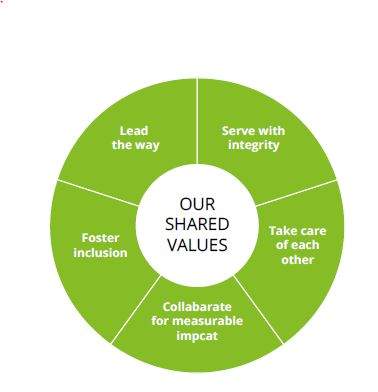
Our NSE Code of Conduct sets out our values and ethical principles. These are critical to our reputation and continued success, and are embedded in everything we do: how we serve clients, how we direct our businesses, how we work together and how we contribute to society. Fundamentally, the reputation of our firm rests on the personal ethics of every Deloitter. Our ethics programme is designed to build trust in our professions and among our professionals, strengthen our reputation and relationships with stakeholders, minimise ethical risk, and help all our people to make the best professional choices. This becomes even more important given our growing and more diverse organisation.
Governance
There is an appointed Ethics Leader in the Netherlands, who engages leadership, addresses and resolves ethics reports and consults on tough issues. The Ethics Leader is also responsible for ensuring a strong tone at the top regarding the importance of ethics and integrity in the workplace. Communication is key to building a consultative and “speak-up” culture. Our Chief Quality Officer is - in her role of NSE Ethics Leader - responsible for ethics within the NSE Firm. The NL- and NSE Ethics Leaders are supported by a Deputy Ethics Officer. Furthermore, the NL Ethics team consists of three confidential counsellors (‘vertrouwenspersonen’). The confidential counsellors are tasked with the reception of reporters, guidance during the process and aftercare, and have a duty of confidentiality according to the law. It’s not their role to find out the truth but to only support the reporter in proposing and discussing possible solutions. Employees, suppliers, business relationships, and other parties can also file a report - if they wish anonymously - using Speak Up, our 24/7 hotline that is run by an independent party. Twelve ethics ambassadors (partners and directors) in our businesses help to broaden the scope of the ethics programme, reaching out to all partners and Deloitte professionals, acting as linking pin between the business and the ethics team, and promoting our core values at a business level. On a periodic basis, the NL Ethics Leader reports on ethics issues and the progress on the ethics programme to the NL Executive Board and NL Supervisory Board.
Learning
In FY21, more than 97% of our partners have attended the ‘Leading with Integrity workshop’, an interactive two-hour session that is delivered across the Deloitte network to all our partners around the world to help them drive consistency in the way they lead and build our Deloitte culture. 93% of our professionals completed the ‘Speak Up for Values’ e-learning for all partners and employees. This e-learning dives deeper into acting on our values and supports the building of a speak-up culture. 98% participated in the Respect & Inclusion e-learning designed to support our partners and professionals in their contribution to an inclusive and ethical workplace, where everyone feels treated fairly and respectfully, regardless of their visible or invisible characteristics.
Case trends
We have observed a decline in the number of reported incidents this year (a total of 64 in 2020/2021, compared to a total of 91 FY2019/2020 and 81 in 2018/2019). Although we cannot be sure about the exact explanation, we assume a year of remote working contributes to this observation. We are taking action to further improve the visibility of our Ethics Office and reporting channels, to encourage Deloitters to report - also when working remotely.
Table 09: Incidents: number of reported occurrence1
Type | 2020/2021 |
Professional conduct | 16 |
Fair treatment or inequality | 25 |
Harassment and sexual harassment | 5 |
Corruption | 0 |
Other or inquiry | 18 |
- 1 As indicated in the About this report section, due to a new classification of incidents, we are unable to provide historic data
The presentation of our ethical incidents in above categories is meant to provide improved insight in the diversity of reports (and differs from the categorisation we presented in previous years which is the reason that we cannot provide historical data at present).
Ethics Survey
In September 2020, we have measured the effectiveness of the ethics programme through our annual ethics survey. With an almost 38% response rate and a good spread of respondents across businesses, we have obtained a clear view on how partners and employees see Deloitte as an ethical employer.
The survey results show that:
-
An increased 97% of all respondents agree that Deloitte is an ethical place to work;
-
The overall level of awareness (ethics team, learning, values and Code of Conduct) is strong and has increased compared to last year. There is even a good level of awareness of the recently launched anti-harassment and anti-discrimination policy (84%), and non-retaliation policy (73%);
-
There is a clear understanding of the responsibility to report conduct which is perceived to be unethical and trust that independent, confidential action will be taken. The trust of being able to report misconduct without fear of retaliation is growing, while the feeling of being pressured to compromise ethical standards to achieve business objectives is decreasing;
-
There are still a number of people who have indicated that they have experienced or perceived misconduct without reporting this. Reasons for example, were that they believed no corrective action would be taken or it would negatively affect relationships with co-workers;
-
Next to this, we see an opportunity for our partners, leadership and management to regularly discuss the importance of ethics and integrity within their teams. In relation to this, recognition for ethical leadership also continues to deserve our attention.
Our Ethics Operational Plan 2021-2023 is based on the number and nature of the ethics incidents and the ethics survey results. The main priorities are:
The main priorities are:
Setting strong tone at the top
-
Strengthen ethical leader behaviours and voice, facilitate leaders to handle ethical reports and discussions, and prepare to foster teams with high integrity. We aim to achieve this by continuing and extending ethics training, and activating towards showing and rewarding / recognising ethical behaviour.
Manifesting a safe environment
-
Encouraging reporting of observed / experienced unethical conduct, reducing the fear for retaliation and increasing awareness of and trust in reporting channels. Demonstrate that corrective action will be taken, by a strong communication approach that focuses on cascaded communication and effective messaging. Communication should include special attention for speak up, non-retaliation and share an appropriate level of detail around cases, consequences, and the reporting / investigations processes (storytelling / transparency reports).
Reinforcing our team and connections
-
Strengthen and diversify the ethics team by broadening the ethics ambassador network and appointing an extra confidential counsellor;
-
Organising stronger connection and cooperation with inclusion and diversity, and intensifying the connection and cooperation with Talent to be able to anticipate on early warning signals.
Anti-Corruption
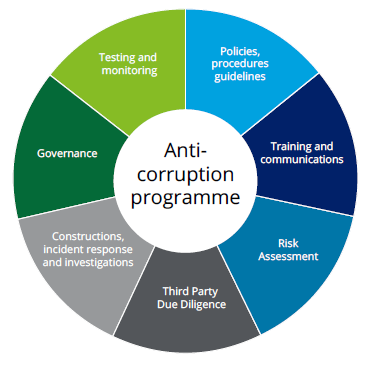
Anti-Corruption is one of our Global Key Commitments and requires the attention of all our partners, employees and external hires. We are against corruption in all its forms and want to contribute to good governance, economic development, and the improvement of social welfare wherever we do business. Our professionals are required to comply with the applicable Anti-Corruption laws, including at a minimum the provisions of the Dutch Criminal Code, the UK Bribery Act (2010) and, if applicable, the Foreign Corrupt Practices Act (FCPA).
Our fully implemented and comprehensive Anti-Corruption Framework, in which our colleagues are intrinsically motivated to comply with our Anti-Corruption values, consists of seven different elements that mitigate the risk of corruption within Deloitte and supports our employees and partners with guidelines to report corruption if needed. These elements include:
-
Governance
Programme strategy and objectives are determined by our Anti-Corruption Committee and the progress of our operational plan is periodically discussed within this governing body. Our Reputation & Risk Leader is also part of the Anti-Corruption Committee and fulfils the role of Anti-Corruption Champion, and has the final responsibility of the NL Anti-Corruption Programme. Other members of this Committee are all subject matter experts and relevant stakeholders of the Anti-Corruption programme. The Committee is responsible for actively overseeing the Anti-Corruption programme. -
Policies, procedures and guidelines
Anti-Corruption is fully implemented in our policies, procedures and guidelines. The policies that are in place for Anti-Corruption are: DPM 1550, DPM 1551, DPM 1552 and the NSE ABC policy with a list of the applicable NSE ABC laws. -
Training and communications
Every employee and partner within Deloitte Netherlands has to successfully complete the Anti-Corruption e-learning biennially. In September 2020, we have launched the refreshed and mandatory Deloitte Global Anti-Bribery and Corruption training, which has been completed by 96% of our partners and professionals. The e-learning is also mandatory for all new hires. Our communications will mainly be tone at the top messages to emphasise the importance of Anti-Corruption. -
Risk assessment
We will update our Anti-Corruption risk assessment along with ethics risk assessment to be performed at NSE level in June 2021. Therefore, the conclusions of the risk assessment performed in 2019/2020 still stand. During the assessment the key risks for Anti-Corruption and Ethics will be discussed and weighed with all NSE relevant stakeholders of the Anti-Corruption programme. The results will be shared with and challenged by the Anti-Corruption Committee. Furthermore, during the year, Anti-Corruption as a risk will be discussed with our Assignment Partners in the Portfolio Risk Reviews. The Assignment Partners are asked to take a critical look at their portfolio concerning the corruption risks that they face and how they make sure that all necessary mitigating measures are implemented. -
Testing & Monitoring
The Anti-Corruption Framework is tested and monitored yearly. The focus will be upon two aspects: the operating effectiveness of the Anti-Corruption elements and process level testing, e.g. hiring of referrals and gifts & entertainment. Internal Audit (IAD) performed specific internal audit procedures for Deloitte the Netherlands in the period from March – April 2021. For this year, process level testing was in scope for the following corruption related topics: 1) Gifts, entertainment and hospitality, 2) Interaction with government officials, 3) Third party due diligence. We have continued our second line of defence monitoring activities. This (bi-monthly) gives us the opportunity to act more quickly and pro-actively upon identifying risks. -
Third Party Due Diligence
Anti-Corruption is not only implemented in our client processes but also for Third Parties, which we call the Third Party Due Diligence process. An Anti-Corruption risk is assigned for every new Business Relation. Furthermore, our procurement policies ensure that suppliers and contractors are selected through a fair, honest and transparent process. -
Consultation, Incident Response and investigations
Anti-Corruption is integrated in our Ethics consultation and incident response procedures. For 2020/2021, no confirmed Anti-Corruption incidents involving partners or employees from Deloitte were reported, and none were brought to the attention of our Reputation & Risk Leader.
Contributing to societal challenges
We contribute to solving complex societal challenges through our ‘Future of’ themes and through the Deloitte Impact Foundation.
Deloitte Impact Foundation
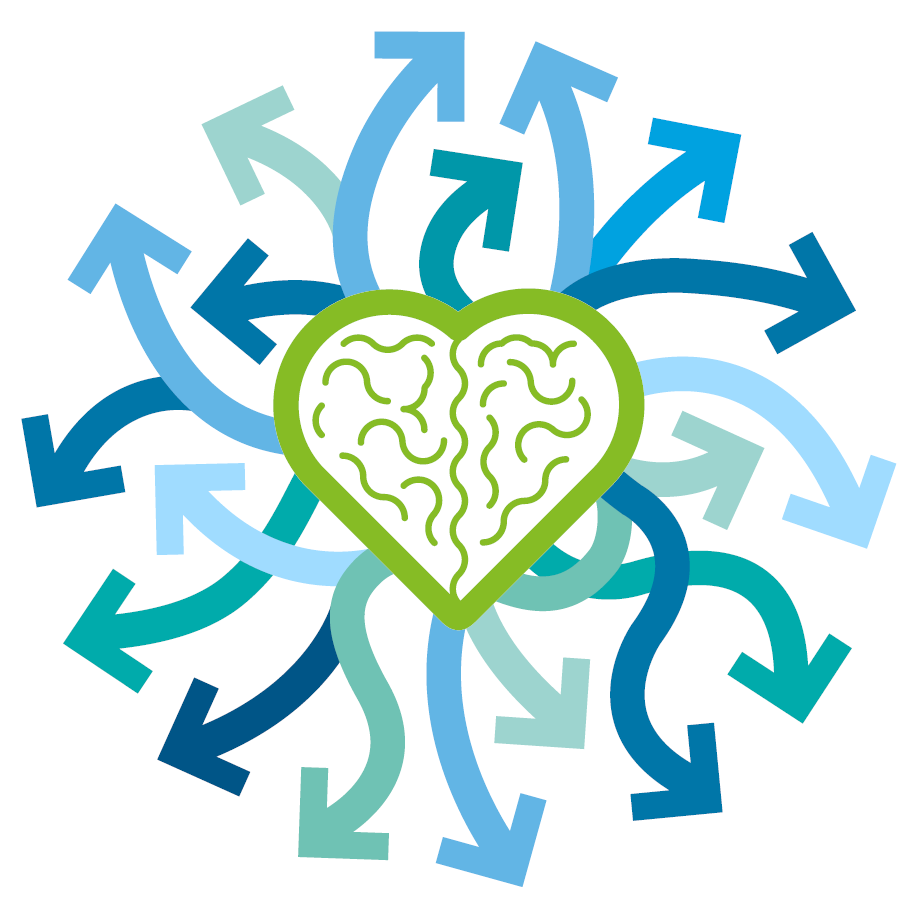
Via the Deloitte Impact Foundation (DIF), our colleagues share (pro bono) their core competencies, knowledge and network to bring a positive impact to society. Our purpose and strategy have created a new momentum in our way of thinking about our impact on society. Our target for 2020/2021 was that 40 percent of our professionals would be involved in the foundation’s initiatives, this target was reached. Another target for 2020/2021 was that one percent of our time, approximately 60.000 hours, would be spent on making an impact through the Deloitte Impact Foundation. Due to COVID-19 related issues, this target turned out to be too ambitious, but we are proud that we still were able to make such an impact on society with less hours.
Looking back at the prior years of the Deloitte Impact Foundation, we are proud of the achievements and lessons learned. These lessons learned have resulted in our new strategy towards 2023. In this strategy, we will introduce three top-down partnerships “in an ecosystem” with external partners focusing on all the DIF themes: WorldClass, Sustainability, and Inclusive society to make more significant, visible and enduring impact.
As mentioned in our previous reports, we already launched our WorldClass programme and we are currently in the research phase for both the Sustainability and the Inclusive society ecosystems. The ambition of our new strategy is also to increase the impact we achieve through employee-led (bottom-up) initiatives, by increasing the volume and quality of proposals, and the impact of already approved initiatives.
Deloitte is committed to driving societal change and promoting environmental sustainability. By working in innovative ways with the government, non-profit organisations and society, and by bundling our knowledge, we are designing and delivering solutions that contribute to a sustainable and prosperous future. Through our various projects we connect to all the sustainable development goals.
Our year
Due to the restrictions that resulted from the COVID-19 pandemic, our contribution to a variety of social causes via the Deloitte Impact Foundation decreased to 17,529 hours in 2020/2021 from 33,521 hours in 2019/2020. We feel that as a result of our revamped strategy, once the COVID-19 restrictions are lifted, we will see a dramatic increase in hours spent. In addition to these results, we are also examining renaming our Inclusive society pillar in order to provide a better insight in the projects in its scope.
We are very proud to announce that this year we have started our WorldClass education programme for a better future for 350,000 vulnerable people. With the WorldClass programme, Deloitte has the ambition to give 50 million people worldwide a better future by 2030. This means that in the Netherlands we want to reach at least 35,000 people every year for the next ten years. How? By implementing our professional skills and expertise within the Deloitte Impact Foundation, by setting up scalable and sustainable projects, and by working together with as many valuable partners as possible. In particular we will improve the education for children in primary and secondary education. Together we can make an impact and increase the labour participation of people with a distance to the labour market.
In 2020/2021, the hours that were recorded in SAP on making an impact on society through the Deloitte Impact Foundation, represented a value of approximately € 1.1 million.
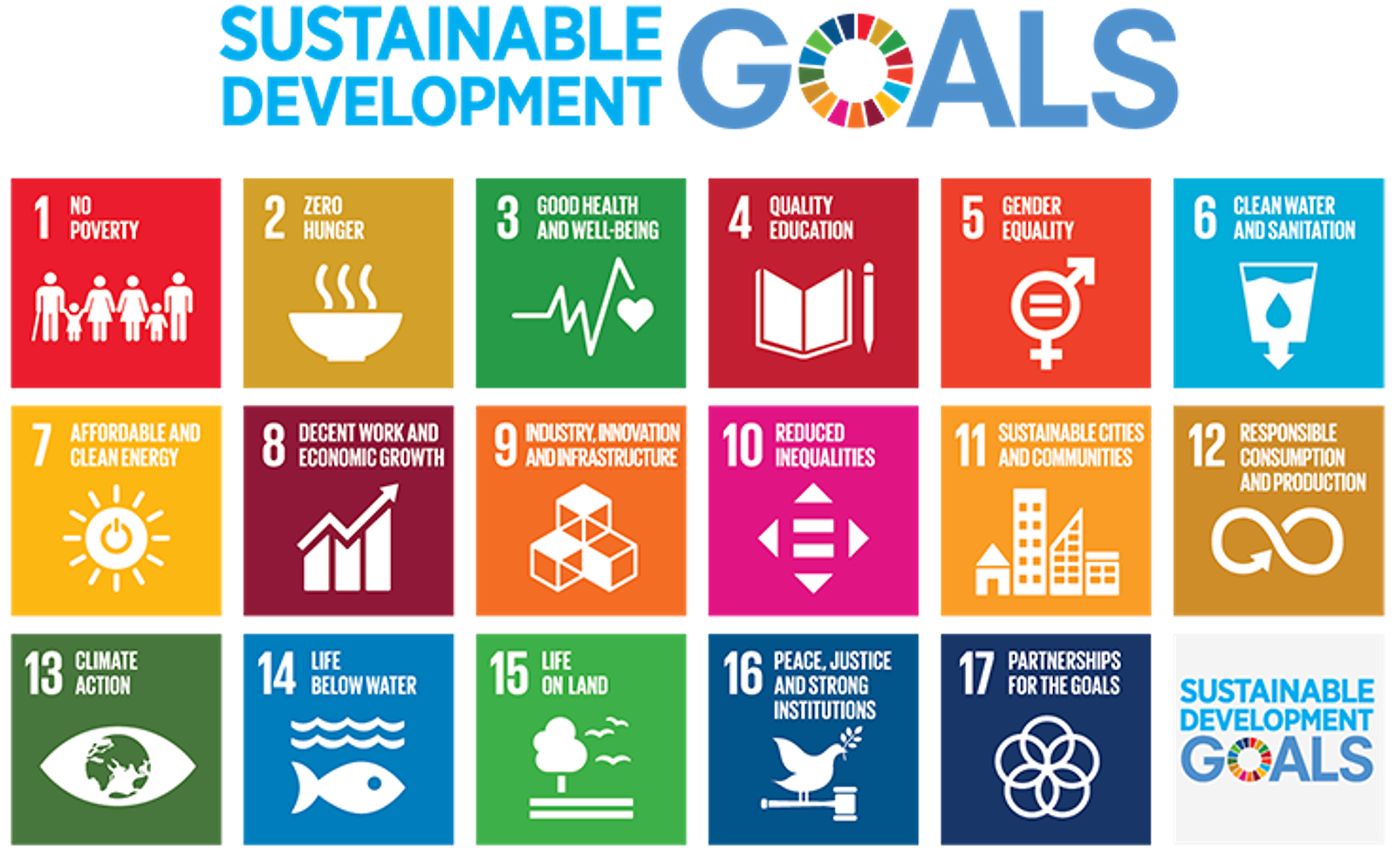
Some of the projects we are particularly proud of are:
WorldClass – The Education Alliance
In 2020, there is a shortage of 4,000 teachers in primary education. By 2025, this will have risen to 10,000. The quality and continuity of education and children's development are at risk. Therefore, alongside the Social Alliance, we are working on solutions to tackle the inequality of opportunities and shortage of teachers in metropolitan regions. This will help safeguard the quality and continuity of our children's education. Read more here.

Sustainability – Cognitive Deforestation Prevention
This Deloitte Impact Foundation initiative enables Deloitte to lead the tech consortium for World Wildlife Fund for Nature’s ‘Early Warning System’ project. This system prevents illegal deforestation through an artificial intelligence solution that predicts where illegal deforestation will happen based on satellite images (radar technology) and other geographical data. Read more here.

Inclusive society – SchuldenLabNL
In the Netherlands, two million households already have payment arrears, 1.4 million of which are potentially in problematic debt, and the economic fallout of the COVID-19 pandemic is likely to push these numbers even higher. SchuldenLabNL is a non-profit public-private partnership aimed at fighting debt and the stress surrounding it. Via the Deloitte Impact Foundation, Deloitte colleagues joined their challenge to improve the effectiveness of Dutch debt support. Read more here.

Impacts
As an external accountant of both financial and non-financial information, we help build the trust that is necessary to facilitate informed decisions on financial transactions (e.g. decisions to invest, divest or grant a government subsidy). Through our advisory work, we enable organisations to better understand their business and operating environment, thereby creating value for their stakeholders. We believe the societal impact of our assurance and advisory work to be greater than the revenues received. We aim to serve our clients with integrity. As a result, we maintain an extensive ethics programme and complaints mechanism. We want to work for and with clients who act with integrity themselves. To this end, we have robust client acceptance and continuance procedures in place. In 2020/2021, our Acceptance Centre performed around 5,000 background checks to support client acceptance or continuance decisions.
To enhance the sustainability of our clients, we offer advisory services to our clients that can help have an impact in this area. Our Sustainability MDM performs services related to - among other areas - energy transition, circular business models and sustainability assurance and reporting. Simultaneously, Deloitte contributes by making knowledge available through, for example, our state of the state research , our ‘Future of’ initiatives and our volunteering through the Deloitte Impact Foundation.
At the same time, we realise that occasionally we have fallen short of societal expectations. Therefore, we see it as our duty and responsibility to adhere to and adopt new measures that help strengthen trust as well as add value.
We observe an increased complexity in value chains and demands for transparency. These topics play an important role in the services we offer and create an impact on SDG16. By making better use of available data, we support clients in more inclusive and responsive decision-making. The protection of this data is facilitated by our work on, for example, cyber security and GDPR. Through our audit, assurance, legal and advisory work, we help support effective, accountable and transparent markets and stimulate trust in financial markets.

Providing social trust by delivering high quality services is crucial for the functioning of reliable economic and social ecosystems. Hence, our contribution to SDG16 is closely linked to our quality ambitions. Our main indicators to measure our impact on this SDG are ‘engagement satisfaction’ and ‘% of regulatory reviews that are satisfactory’, having set targets in both areas as part of our Strategy 2023.
SDG17 concerns partnerships. We realise that, increasingly, we can only tackle complex challenges in partnership with others. To this end, creating effective ecosystems is fundamental principle of our ‘Future of’ agenda. Together with our partners we want to find solutions to social challenges around food, energy and mobility, directly impacting the SDGs. Indeed, in the social contribution made by the Deloitte Impact Foundation, partnerships also play a central role. In most cases, it is our collaboration with partner organisations that enables us to make an impact, for example on biodiversity through our partnership with WWF, on marine life through our partnership with The Ocean Cleanup or on education through partnerships with organisations such as JINC.